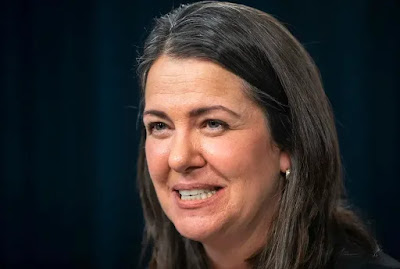I have already written about Doug Ford's refusal to testify at the public inquiry into the occupation of Ottawa. Today, Michael Harris takes on the issue:
Besides refusing to personally shed light on a matter that goes to the heart of the public interest, there is another reason why Doug Ford should be ashamed of himself. As the leader of the government, he represents the law. What message does it send to the public when the head of government decides that he doesn’t have to give an interview, offer testimony, or comply with a subpoena on a matter of great importance to everyone?
What message does it send when he effectively tells the people who elected him, he doesn’t have to tell them what really happened in their province? And there is this question: if the prime minister of the country can step up and testify at the Emergencies Act inquiry, without a subpoena, as he plans to do, why can’t the premier of Ontario?
Ford argues that his government has already co-operated with the inquiry by handing over cabinet material and making senior officials of the government available for testimony. He is going to court to argue that the subpoena violates his parliamentary privilege.
That is a fig leaf to cover what is really at stake here. Ford doesn’t want to comply with the subpoena from the commissioners, because it will put him precisely where a growing number of politicians and their aides don’t want to be: forced to answer inconvenient questions under oath.
The defiance of subpoenas by politicians has become an epidemic:
This is getting to be a serious issue in politics, both for politicians themselves and their staffs. Consider the parade of American public figures in whose dubious footsteps Ford is following.
Courtrooms are to former U.S. president Donald Trump what garlic and crosses are to Dracula. The reason is simple. When you get to court, if you lie under oath, it’s a crime. You can lie to the country, and you can lie to the media with impunity. But when you lie in court, it’s called perjury. Which is why Trump has done everything possible to avoid the subpoena of the House Select Committee to Investigate the Jan. 6 Attack, despite his empty criticism that no one at the proceedings is telling his side of the story.
When he was finally dragged into court by New York Attorney General Letitia James in her massive fraud investigation of the Trump organization, the artist of the deal answered only one question: what was his name? After that, he took the Fifth Amendment 440 times, a tactic he once said was the stock and trade of the Mafia. He has now been served with a $250-million lawsuit for alleged massive fraud by New York’s attorney general.
Senator Lindsay Graham refused to comply with a grand jury subpoena from the Atlanta-area district attorney looking into potential interference in the 2020 election by Trump and his minions. Georgia election officials testified that during a telephone call, Senator Graham tried to get them to change the result of the election in Trump’s favour.
Former White House Trump adviser Steve Bannon ignored a Congressional subpoena from the Jan. 6 Select Committee. He never produced a single document, nor the log of his activities at the time of the Capitol Hill riot. Instead, he argued that he had “executive privilege,” a point a lawyer for the former president disputes. Bannon was eventually convicted on two counts of criminal contempt of Congress, and has been sentenced to four months in prison. He remains at large pending his appeal.
Does Doug believe he rules by Divine Right?
Image: The Hill Times

























